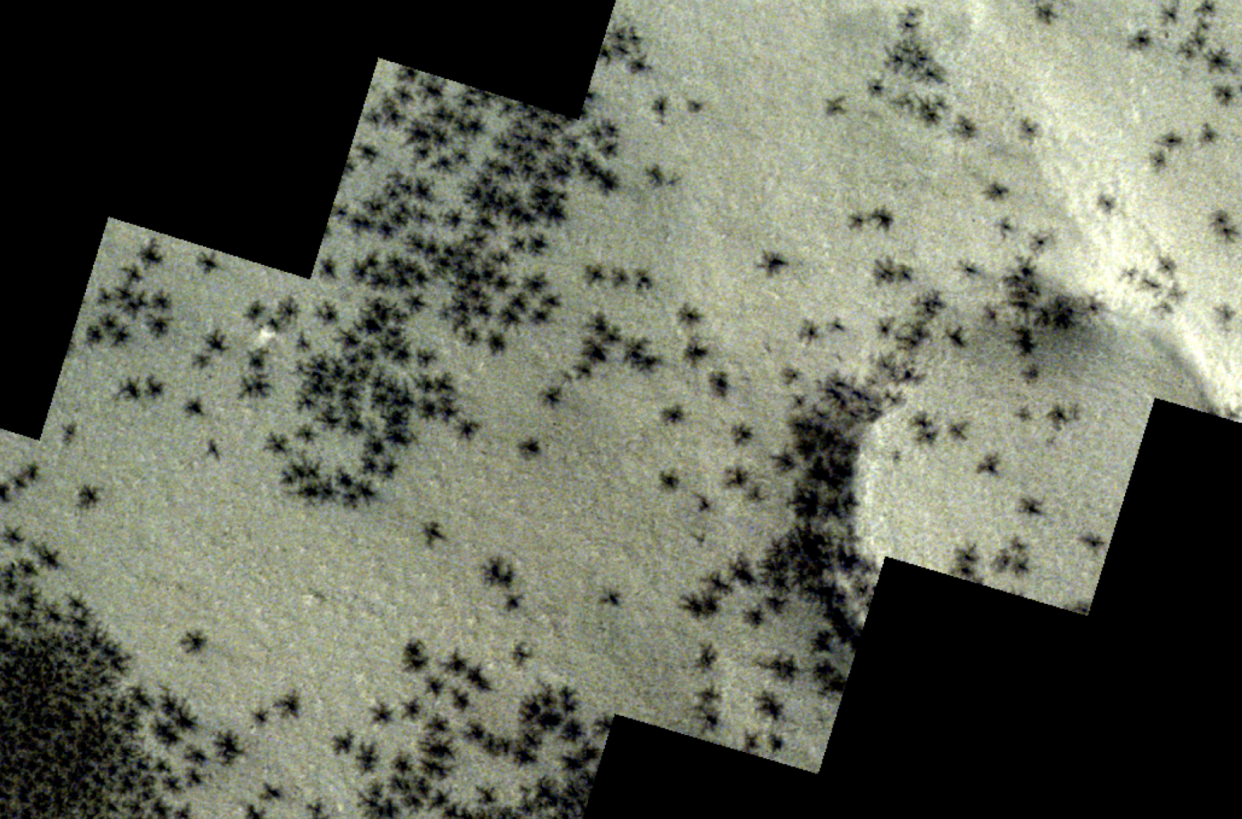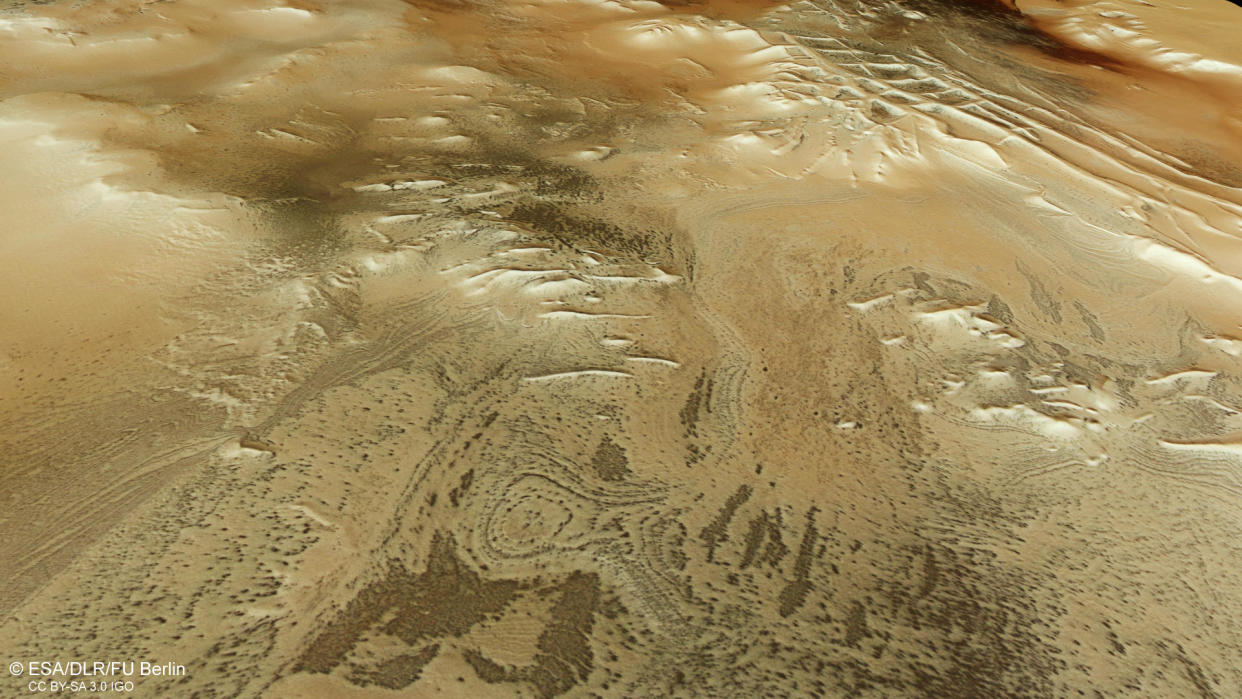Spacecraft spots "spiders" scattered across surface of Mars
A unique phenomenon that could be mistaken for spiders scuttling across the planet's surface has been spotted on Mars, according to the European Space Agency.
The ESA said in a news release that one of its Mars Express orbiter captured images of the "spiders," which are really just small, dark-colored features that begin to be formed when sunshine falls on carbon dioxide deposited during the planet's winter months. The light causes the carbon dioxide ice at the bottom of the deposits to turn into gas, which eventually bursts through ice that can be up to three feet thick, shooting dust out in geyser-like blasts before settling on the surface, the space agency said.

While the spots might look tiny from space, they're actually fairly large. The ESA said that the patches are as small as 145 feet wide, at their largest, might be over half a mile wide. Below those large spots, the arachnid-like pattern is carved beneath the carbon dioxide ice, the ESA said.
The spider patterns were observed by the ExoMars Trace Gas Orbiter, which launched in 2016 and has been studying Mars for signs of possible past life. The majority of the dark spots captured by the orbiter appear on the outskirts of a part of Mars nicknamed "Inca City" because of its "linear, almost geometric network of ridges" reminiscent of Incan ruins. The area, discovered in 1972 by a NASA probe, is also known as Angustus Labyrinthus, and is near the planet's south polar cap.

It's not clear how the area was formed, the ESA said. Suggestions include sand dunes that turned to stone over time, or material like magma or sand seeping through rock.
Mars is currently experiencing spring-like weather, according to NASA. NASA's Curiosity Rover has been enjoying the warmer weather on the planet, the agency said in a news release, working on environmental monitoring and exploring Mars' Gale Crater.
U.S. Catholics and their relationship to the church
Pope Francis says "negotiated peace is better than a war without end"
Pediatrician on lessons from Flint water crisis: "Flint has opened our eyes"
